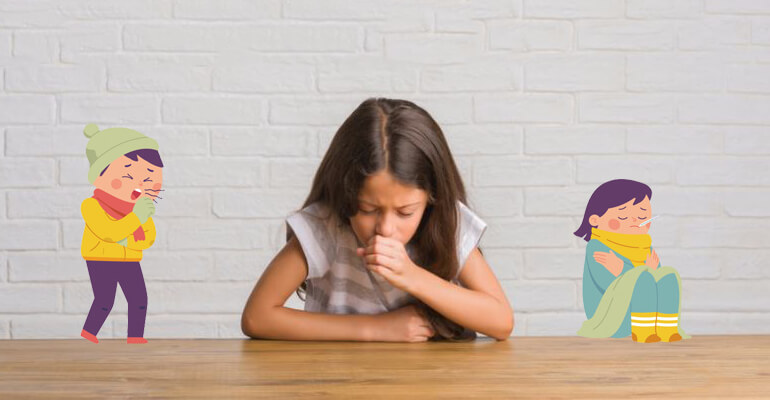What is Habitual Cough? How to Treat Your Child Habit Coughing?
You may have encountered this simple but troublesome problem in your child. In the case of a habitual cough, your child may have frequent bouts of coughing which are not severe but because you concern as parents. Multiple courses of cough syrups, expectorants and antibiotics may have been used with little or no improvement
1. What is Habitual Cough?
Ans. It is a cough that occurs in the absence of any underlying disease. Most frequently it affects school age children, usually those in the age group of 4-11 yr.
2. What are Features of Habitual Cough?
Ans. It is usually loud, harsh, honking or barking. It may follow a viral illness, but go on for weeks, months or even, in extreme cases, years.
It can occur many times in a minute, and often become more severe when other people, such as parents, teachers and health care providers, are around. Even though the habit cough can sound harsh, the child is quite comfortable between coughing bouts.
Classically, a habit cough only occurs when the child is awake. It is not associated with breathing difficulty or wheeze (musical sounds while breathing).
3. What is Treatment Plan and Role of Parents?
Reassurance that the cough is not serious and will go away helps resolve the symptoms.
Habit cough is a manifestation of perceived stress or anxiety. Your child might be able to isolate this stress by identifying situations in which the cough gets worse. For example, bullying in the schoolyard and traveling to and from school is a common trigger of habit cough.
Coughing can irritate the airways and lead to more coughing, so try to break the cycle. The use of cough lozenges (strepsils or vicks) or a sip of water can help.
It is important to give positive reinforcement in the form of praise and positive comments when there is any evidence that the cough is diminishing.
4. What to do if Your Child is Not Improving?
Ans. If the cough is persistent and doesn’t improve and certainly if he/she is unwell please seek immediate medical advice from your pediatrician. For queries, consult our expert doctors at Ratan Hospital for Women and Children.


Comments ( 25,385 )